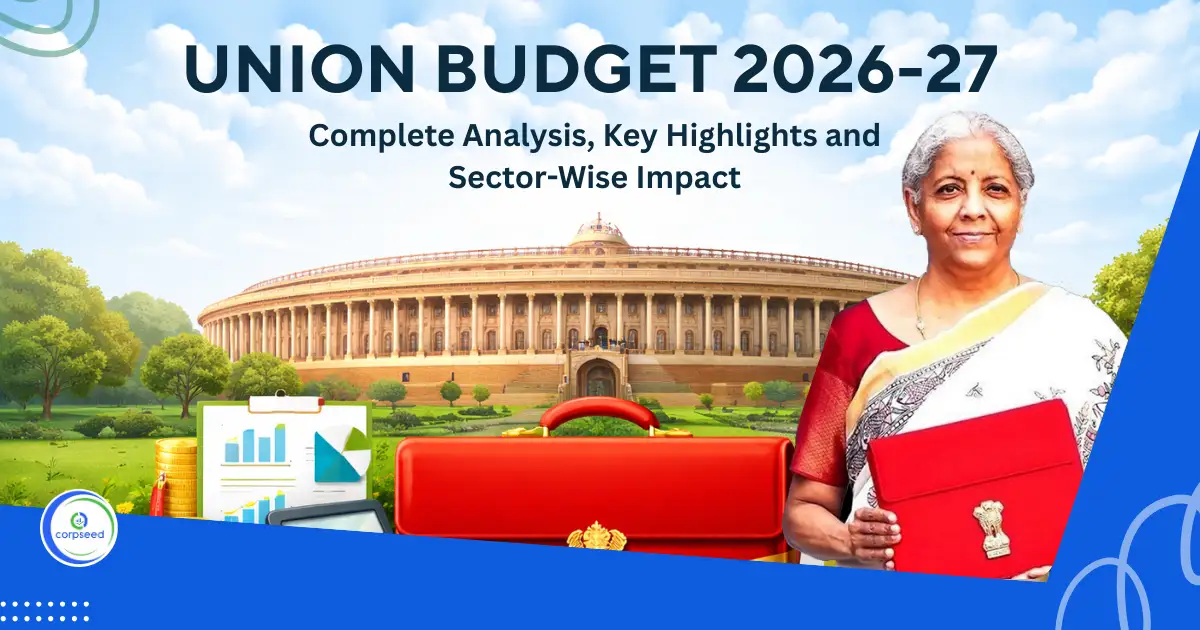What is Fixed Deposit (FD) Account:
Table of Contents
- What is Fixed Deposit (FD) Account:
- Types of FDs Available:
- Tax Saving Fixed Deposits:
- Key Features of Tax Saver FD:
- Key Benefits of Tax Saver FD:
- Eligibility Criteria for Tax Saving Term Deposit:
- Documents required to open a Tax Saving FD account:
- Tax Deductible on Fixed Deposits:
- How to Avoid TDS on FDs:
Banks and other financial institutions provide fixed deposit accounts as an investment option. Investors would deposit a big sum over a period of time into this account. In exchange, customers would get a fixed rate of interest for the duration of the investment. The interest rate on FDs is substantially higher than the interest rate on a standard savings account. Investors can withdraw their funds at the conclusion of the deposit's term. They can, on the other hand, reinvest their money over a longer period of time. Fixed deposit accounts are available from all scheduled commercial banks, as well as several NBFCs and HFCs in India. Check the ratings of the financial institution issued by organisations such as CRISIL before investing in FDs provided by an NBFC or HFC. This is to ensure that your funds are secure. Banks and other financial organisations in the private sector may charge a somewhat higher interest rate than public sector banks.
Types of FDs Available:
- Fixed deposit accounts are divided into numerous types based on the account's features, the type of account holder, and the reason for opening the account. We've mentioned a few different sorts of FD accounts below:
- Regular FD Account: Individuals under the age of 60 are eligible for a normal FD account. The interest rates on this type of FD account will be lower than those available to older citizens. This account can be opened by any Indian citizen.
- FD Account for Senior Citizens: This account is for senior citizens, or those who are over the age of 60. Such account holders receive a greater interest rate than usual and have access to the monthly interest payout option, which can be viewed as a way for senior citizens to cover their monthly needs.
- Corporate FD Account: Banks provide corporate clients a unique set of interest rates and deposit terms. Firms can temporarily store excess funds or earnings in corporate FD accounts until they need the money.
- Tax-Saving FD Account: Many risk-averse people use tax-saving FD accounts with a five-year minimum lock-in period to save money on taxes. Section 80C of the Income Tax Act of 1961 allows for a tax deduction on such deposits.
- NRO FD Account: Overseas Citizens of India (OCI), Persons of Indian Origin (PIO), and Non-Resident Indians can all create a Non-Resident Ordinary FD account (NRI). Any INR-based revenue can only be deposited in NRO FD accounts. This account can be opened jointly with an Indian resident if that person comes into one of the familial categories listed in Section 6 of the Companies Act, 1956.
- NRE FD Account: Two or more NRIs can open a Non-Resident External (NRE) FD account. The account serves as a convenient method of converting foreign currency earned outside of India into Indian rupee values. This account's principle and interest are both fully reimbursable. Section 10(4) of the Income Tax Act exempts interest income from this account from taxation.
- FCNR FD Account: NRIs can create a Foreign Currency Non-Repatriable FD account in India and deposit funds earned abroad. US Dollars, Pound Sterling, Euro, Japanese Yen, and other currencies are commonly accepted. You can keep your money in the same currency and make significant returns with this account.
- FD Account with Monthly Payout: On a monthly basis, these FD accounts pay out accumulated interest. In this situation, the accumulated interest will not be added back to the principal, and the interest will not be compounded. You can have the interest component deposited into your savings account on a monthly basis and use the money for whatever you like.
- FD Account with Maturity Payout: In this situation, interest accumulates in the FD account over the deposit term, is compounded, and you are paid the principle plus interest components when the FD account matures.
Tax Saving Fixed Deposits:
According to existing tax legislation, if a person invests in a tax-saving FD, he or she can deduct the amount invested up to a maximum of Rs 1.5 lakh from his or her income. The amount invested in this manner is intended to reduce gross total income to taxable income. Section 80C of the Income Tax Act allows for this type of deduction. Section 80C also establishes the maximum investment limit, which is currently set at Rs 1.5 lakh. The tax-saving fixed deposit is one of the few investment options now available for claiming a tax credit under Section 80C of the Income Tax Act.
Individuals and HUFs are the only ones who can invest in the tax-saving fixed deposit (FD) plan. This FD can only be opened with a specified minimum deposit, which differs from one bank to the next. Fixed deposits have a 5-year lock-in period, and withdrawals before maturity, as well as loans against them, are not permitted.
These FDs can be purchased from any public or commercial bank, but not from cooperative or rural banks. An investment in a Post Office Time Deposit for a period of five years is also eligible for a deduction under section 80(C) of the Income Tax Act of 1961. This Post Office Fixed Deposit has the ability to be transferred from one Post Office to another.
Key Features of Tax Saver FD:
- Tenure: 5 years to 10 years.
- Interest rates available: 5.30% p.a. to 6.00% p.a. for the general public.
- Deposit range: Rs.100 to Rs.1.50 lakh p.a.
Key Benefits of Tax Saver FD:
- Section 80C of the Income Tax (IT) Act, 1961, lists tax exemptions.
- After the 5-year lock-in term has expired, a premature withdrawal is permitted.
- Most banks provide senior folks a 0.50 percent interest rate increase.
- Most Tax Saving FD plans allow you to open a joint account.
- Only the primary account holder is eligible for tax benefits in the case of a joint account.
Eligibility Criteria for Tax Saving Term Deposit:
- Resident Indians.
- Individuals.
- Hindu Undivided Families (HUF).
- In both single and combined accounts, you can open a tax-saving FD.
Documents required to open a Tax Saving FD account:
- Permanent Account Number (PAN) Card.
- Government-recognized ID proof:
- Aadhaar Card.
- Driving License.
- Passport.
- Ration Card.
- Voter ID Card.
- Government-recognized address proof.
- Proof of age (for senior citizens).
- 2 recent colour passport-size photographs.
Tax Deductible on Fixed Deposits:
Individuals can claim a tax deduction of up to Rs.1.5 lakh for investments in tax-saving fixed deposits under existing tax legislation. To arrive at the taxable income, the amount will be deducted from the individual's total gross income. This deduction is allowed under Section 80C of the Income Tax Act. The following are some of the requirements for claiming this deduction:
- Tax-saving fixed deposit schemes are only available to Hindu United Families (HUF) and individuals.
- The Fixed Deposit might be as small as the bank's minimum requirement.
- The 5-year lock-in period applies to tax-saving fixed deposits. It is not possible to make premature withdrawals or loans against a Fixed Deposit.
- Individuals, with the exception of co-operative and rural banks, can invest in these Fixed Deposits through any commercial or public sector bank.
- Section 80C of the Income Tax Act of 1961 allows for deductions on a five-year Post Office Time Deposit.
- Post Office Fixed Deposits can be moved from one post office to another.
- Fixed Deposits can be held individually or in a joint account. In the case of a joint fixed deposit, the first holder of the Fixed Deposit will receive the tax benefit.
- Because the interest earned on these Fixed Deposits is taxed according to the investor's tax bracket, TDS is required. The interest on the investment is paid either monthly or quarterly, and the interest can be reinvested.
- Nomination is possible with Tax Deductible Fixed Deposits.
- On these Fixed Deposits, banks provide somewhat higher interest rates to senior residents. This higher interest rate is available on Tax Saving Fixed Deposits.
How to Avoid TDS on FDs:
All interest income produced in India, including FDs, is subject to Tax Deducted at Source (TDS). If the applicant's or account holder's interest income exceeds Rs.10,000 in a given financial year, the applicant or account holder must pay tax. The account holder, however, will not have to pay tax if the interest earned is less than Rs.10,000.
- Self-declaration: Please file form 15G or 15H, whichever is relevant, if the interest earned on FDs and total taxable income earned during the financial year does not exceed the prescribed taxable limit.
- Which form is for whom: The general public fills out Form 15G, whereas senior citizens fill out Form 15H. The applicant must be a resident of India who is under the age of 60 and whose income does not exceed the tax threshold. Only an Indian resident over the age of 60 and an individual who does not exceed the tax threshold can fill out Form 15H.
- Managing investments better: You can invest in such a way that your total investment for the year does not exceed Rs.10,000. For example, in October, one could invest in a one-year FD, dividing the financial year in half. You can avoid TDS on your investment because the financial year finishes on March 31.
- The second applicant waived off TDS: TDS will be taken from your account automatically if the interest income produced exceeds the ceiling if you are the first applicant in a joint FD. TDS is unlikely to be deducted if you are the second applicant in a joint account.
- Distributing investments: Another alternative for investors is to spread their money across several banks rather than placing everything in one.
- PAN: For your FD investment, you must provide your PAN information to the bank. Banks will deduct TDS at a higher rate if you do not provide your PAN details, which is normally 20%.
- Late submission: If you neglect to submit the self-declaration papers and the TDS is deducted, the Income Tax Department will repay you if you file tax returns. However, you will have to wait until July of the following year, and the refund will take many months to process.
FDs continue to be one of the most popular investment options because they provide guaranteed returns with no financial risk. Instead of paying large taxes, it is critical to take all required efforts to undertake tax planning and better manage your finances. In Addition to the methods stated above, if one makes other investments, one may be eligible for tax exemption, which will help to lower the individual's tax burden to some extent.
Alternative Investment Funds Registration
Alternative Investment Funds (AIFs) are private investment vehicles that pool capital from investors and invest in assets such as private equity, real estate or hedge funds. Alternative Investment Funds (AIFs) are growing in popularity due to their ability to provide higher returns and diversify investment portfolios.
Merchant Banker Registration
Merchant banker registration is a process structured by the Securities and Exchange Board of India (SEBI), which authorizes financial institutions to legally engage in merchant banking activities. This process ensures that firms adhere to SEBI regulations and guidelines, protect investor interests and promote a healthy, transparent financial market across India.
Mutual Fund Business Registration
The mutual fund business manages pooled investments from multiple investors, diversifying them across various assets to achieve specific financial goals. Fund managers make investment decisions, while the business earns revenue through management fees and charges.
This portion of the site is for informational purposes only. The content is not legal advice. The statements and opinions are the expression of author, not corpseed, and have not been evaluated by corpseed for accuracy, completeness, or changes in the law.
BOOK A FREE CONSULTATION
Get help from an experienced legal adviser. Schedule your consultation at a time that works for you and it's absolutely FREE.









